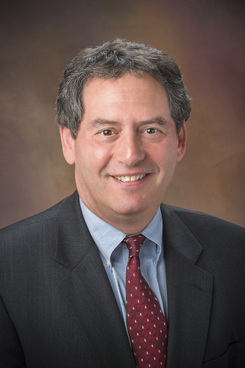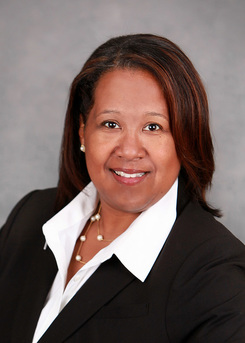NY Lawyer Decries 'Anything Goes' Atmosphere at Title IX Hearings
"My chest was pounding," said trial lawyer Andrew T. Miltenberg of Nesenoff & Miltenberg of New York after leaving a Title IX hearing on Sept. 6. "I thought I was in some sort of charade or show trial."
September 13, 2018 at 12:11 PM
10 minute read
The original version of this story was published on National Law Journal
 U.S. Secretary of Education Betsy DeVos. Photo: Gage Skidmorevia Wikimedia Commons.
U.S. Secretary of Education Betsy DeVos. Photo: Gage Skidmorevia Wikimedia Commons.
Lawyers are in two minds about potential implications of U.S. Secretary of Education Betsy DeVos' move to draft changes to Obama-era policies for schools handling sexual misconduct allegations under the Title IX federal law.
While most attorneys favor concrete rules over the general guidance provided by the Obama administration, key issues such as jurisdiction, standard of evidence and equal protection divide them. Some say the rules will silence and intimidate victims, while others believe the proposal would provide due process for accused students facing potentially life-altering penalties.
“My chest was pounding,” said trial lawyer Andrew T. Miltenberg of Nesenoff & Miltenberg of New York after leaving a Title IX hearing on Sept. 6. “I thought I was in some sort of charade or show trial. And I could not believe, even though I should now be used to it, the abuses of process and the complete 'anything goes' atmosphere. As long as we have that, no one should be happy.”
The main issue, according to attorneys, like Miltenberg, involved in cases alleging sexual assault on campus: feeling they're participating in a “circus” of a hearing conducted by an “ill-equipped and ill-trained” investigative panel.
Click here to see how the proposed Title IX guidelines compare to the old.
'Two Forces'

Jeremy Mishkin of Montgomery McCracken Walker & Rhoads in Philadelphia.
Last year, when the U.S. Department of Education rescinded a 2011 Dear Colleague letter that had served as standalone guidance for universities and colleges investigating and pursuing sexual assault claims, many took that as a signal that new rules were coming.
“The intent behind [the letter] was to make it less difficult for a person complaining about a violation to get relief,” said Jeremy Mishkin of Montgomery McCracken Walker & Rhoads in Philadelphia.
But this, he said, caused a “dilemma.”
“People accused of these things quite often felt they were, for all intents and purposes, being charged with a crime,” Mishkin said.
According to Mishkin, students accused of sexual assault often ask whether they have the right to confront their accuser or to see the evidence against them.
“The answer is, in many cases, [is] 'No. You don't,'” the attorney said.
Mishkin called the Dear Colleague letter a “noble effort,” but said it might have conflated the notion of protecting a victim's mental and physical health with the adjudication process.
Read the 2011 Dear Colleague letter:
[falcon-embed src="embed_1"]
 Kelley Hodge of Elliott Greenleaf.
Kelley Hodge of Elliott Greenleaf.“You want to be completely supportive of the victim, but at the same time, as a society, we want those who are accused of acts that are criminal to have due process of law. Those are two forces that are very fundamental American ideals,” said Mishkin.
Elliott Greenleaf attorney and former Title IX coordinator for the University of Virginia Kelley Hodge said she finds the idea of giving schools the option of using clear and convincing standard of evidence “concerning.”
“Is that really fair and appropriate across the board?” Hodge asked. “It can create in my opinion levels of inconsistency and inequity that are going to potentially undercut the essence of what Title IX is supposed to be.”
'Kangaroo Court'
Boston criminal defense attorney Norman Zalkind of Zalkind Duncan & Bernstein, who's represented both complainants and respondents, is dissatisfied with what he sees as a widespread “presumption of guilt” in the Title IX arena.
“If somebody is sexually violated, attacked or harassed they should be protected, but there should be protections on both sides because you're asking for very serious punishments,” Zalkind said.
He calls the system a “kangaroo court” that puts young defendants on trial with little due process. Instead of the current process, Zalkind hopes for one requiring a “clear and convincing” standard of evidence.
“There's a bias. Students' lives have been ruined and their families have gone broke over this, so there should be better protections,” he said. ”This isn't like drinking on campus. This isn't like taking a drug or causing a little damage to the house. These are very serious charges.”
According to Zalkind, schools frequently suspend or expel the accused, and leave them with a record that can significantly hinder their academic and professional lives.
“A lot of times, they're talked to before they have a chance to seek counsel or an adviser, and they don't know what to say,” he said. “They're 18 years old. They've been babied by their parents and they're not ready for this.”
This content has been archived. It is available through our partners, LexisNexis® and Bloomberg Law.
To view this content, please continue to their sites.
Not a Lexis Subscriber?
Subscribe Now
Not a Bloomberg Law Subscriber?
Subscribe Now
NOT FOR REPRINT
© 2025 ALM Global, LLC, All Rights Reserved. Request academic re-use from www.copyright.com. All other uses, submit a request to [email protected]. For more information visit Asset & Logo Licensing.
You Might Like
View All
New York Court of Appeals Blocks Trump Attempt to Stay Friday Sentencing

Balancing Judicial Authority: Understanding Sanctions, Severance, and Interferences
8 minute read
Trending Stories
- 1Many LA County Law Firms Remain Open, Mobilize to Support Affected Employees Amid Historic Firestorm
- 2Stevens & Lee Names New Delaware Shareholder
- 3U.S. Supreme Court Denies Trump Effort to Halt Sentencing
- 4From CLO to President: Kevin Boon Takes the Helm at Mysten Labs
- 5How Law Schools Fared on California's July 2024 Bar Exam
Who Got The Work
Michael G. Bongiorno, Andrew Scott Dulberg and Elizabeth E. Driscoll from Wilmer Cutler Pickering Hale and Dorr have stepped in to represent Symbotic Inc., an A.I.-enabled technology platform that focuses on increasing supply chain efficiency, and other defendants in a pending shareholder derivative lawsuit. The case, filed Oct. 2 in Massachusetts District Court by the Brown Law Firm on behalf of Stephen Austen, accuses certain officers and directors of misleading investors in regard to Symbotic's potential for margin growth by failing to disclose that the company was not equipped to timely deploy its systems or manage expenses through project delays. The case, assigned to U.S. District Judge Nathaniel M. Gorton, is 1:24-cv-12522, Austen v. Cohen et al.
Who Got The Work
Edmund Polubinski and Marie Killmond of Davis Polk & Wardwell have entered appearances for data platform software development company MongoDB and other defendants in a pending shareholder derivative lawsuit. The action, filed Oct. 7 in New York Southern District Court by the Brown Law Firm, accuses the company's directors and/or officers of falsely expressing confidence in the company’s restructuring of its sales incentive plan and downplaying the severity of decreases in its upfront commitments. The case is 1:24-cv-07594, Roy v. Ittycheria et al.
Who Got The Work
Amy O. Bruchs and Kurt F. Ellison of Michael Best & Friedrich have entered appearances for Epic Systems Corp. in a pending employment discrimination lawsuit. The suit was filed Sept. 7 in Wisconsin Western District Court by Levine Eisberner LLC and Siri & Glimstad on behalf of a project manager who claims that he was wrongfully terminated after applying for a religious exemption to the defendant's COVID-19 vaccine mandate. The case, assigned to U.S. Magistrate Judge Anita Marie Boor, is 3:24-cv-00630, Secker, Nathan v. Epic Systems Corporation.
Who Got The Work
David X. Sullivan, Thomas J. Finn and Gregory A. Hall from McCarter & English have entered appearances for Sunrun Installation Services in a pending civil rights lawsuit. The complaint was filed Sept. 4 in Connecticut District Court by attorney Robert M. Berke on behalf of former employee George Edward Steins, who was arrested and charged with employing an unregistered home improvement salesperson. The complaint alleges that had Sunrun informed the Connecticut Department of Consumer Protection that the plaintiff's employment had ended in 2017 and that he no longer held Sunrun's home improvement contractor license, he would not have been hit with charges, which were dismissed in May 2024. The case, assigned to U.S. District Judge Jeffrey A. Meyer, is 3:24-cv-01423, Steins v. Sunrun, Inc. et al.
Who Got The Work
Greenberg Traurig shareholder Joshua L. Raskin has entered an appearance for boohoo.com UK Ltd. in a pending patent infringement lawsuit. The suit, filed Sept. 3 in Texas Eastern District Court by Rozier Hardt McDonough on behalf of Alto Dynamics, asserts five patents related to an online shopping platform. The case, assigned to U.S. District Judge Rodney Gilstrap, is 2:24-cv-00719, Alto Dynamics, LLC v. boohoo.com UK Limited.
Featured Firms
Law Offices of Gary Martin Hays & Associates, P.C.
(470) 294-1674
Law Offices of Mark E. Salomone
(857) 444-6468
Smith & Hassler
(713) 739-1250







